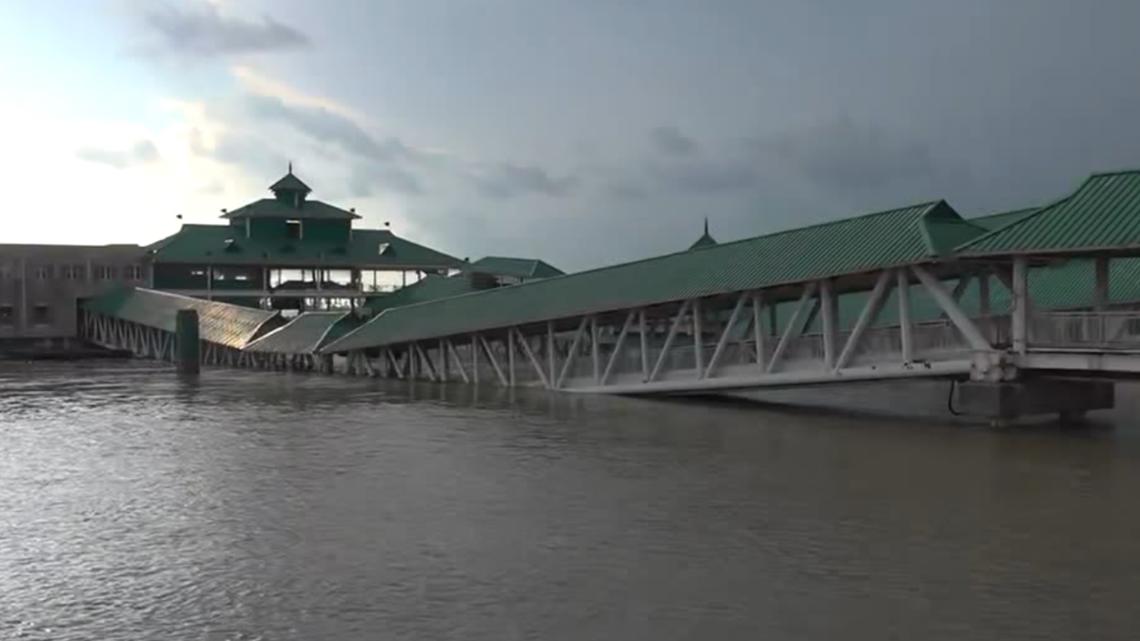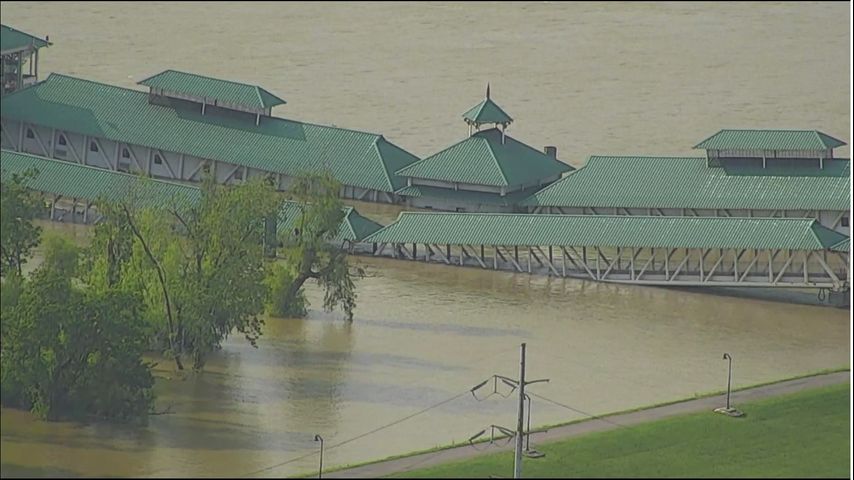At casinos, the odds are never in a punter’s favour.
Now one of Australia’s biggest casino operators is facing the prospect of losing it all, with a top analyst predicting Star Entertainment Group has a 50 per cent chance of going into administration.
That is odds of 1:1 — the same as flipping a coin playing two-up on Anzac Day.
“It could all unravel,” Morningstar analyst Angus Hewitt says.
“We think it is pretty unlikely Star is going to be able to trade itself out of this predicament.”
Leaders in the two states where Star runs casinos are now talking about contingency plans for workers, although the company’s issues are so publicly toxic that talk of help is carefully worded.
“We won’t be bailing them out,” NSW acting premier Penny Sharpe told reporters on Monday.
How did Star get to this dire point?
Star has run casinos in Sydney, Brisbane and on the Gold Coast for decades.
Both Star and other casino companies Crown and SkyCity have been the subject of ongoing investigations and royal commissions in four states over the past five years, which have highlighted money laundering concerns.
One inquiry found Star had allowed organised crime bosses, including triad gangs from Macau, to run gambling operations out of its premises, with it deemed “unfit” to hold a licence.
Star is now battling legal action, with the corporate watchdog ASIC alleging Star’s board and directors had “failed to give sufficient focus to the risk of money laundering and criminal associations”.
ASIC also prompted Star to set aside $150 million in cash, in case it has to pay fines over separate action taken against it by the federal money laundering regulator, AUSTRAC.
Ironically, amid these rolling scandals, Star was actually tipped over the edge by its ongoing plans for expansion.
The company is a major backer in the recently opened Queen’s Wharf entertainment precinct in Brisbane, with a cost blow-out on the $3.8 billion project putting Star’s already shaky future in jeopardy.
The Queens Wharf precinct is linked directly to South Bank. (ABC News: Matt Eaton)
As Star has been pouring money into new developments, it has also been battling regulation that is lowering the amount that gamblers can punt in some markets.
“Operationally, conditions are really challenged,” analyst Angus Hewitt said.
“The consumer is weak with cost of living pressures, and mandatory carded play is really weighing on revenue at Star.
“On the cost side, Star is trying to prove suitability to regain its licences both in New South Wales and in Queensland, with that leading to a massive uptick in legal, transformation and compliance costs.”
In recent times, shareholders in the publicly listed company have shovelled billions of dollars into Star to keep it afloat, with their efforts not stopping their investment’s value from tanking.
Last week, the financial picture got even worse, when Star put out a market update indicating that its cash reserves had sunk further to just $79 million at the end of 2024.
“Cash burn for the last three months has been $100 million,” Mr Hewitt said.
Equities analyst Angus Hewitt thinks Star could go into administration within weeks. (ABC News: Scott Preston)
The company’s already used up the entire $100 million loan offered to it by a banking consortium last year, and said it is struggling to meet conditions so it can draw down on another $100 million more.
“The Group continues to explore other liquidity solutions,” its note to the ASX said.
The worse-than-expected cash burn saw Star’s share drop further to a new low of about 10 cents last week.
It regained slightly on Monday to about 11 cents, which appeared to be driven by a significant share buy-up by a Chinese investor.
Star’s market update also prompted analyst Angus Hewitt to issue that prediction that Star was now at a 50 per cent chance of collapse and that investors could be “wiped out”.
The second report found Star Entertainment group failed to address a culture of unethical conduct and criminal infiltration. (AAP: Joel Carrett)
Adding to the dire predictions, Mr Hewitt also bets that Star could be fined more than double the $150 million it has set aside for the AUSTRAC case, with a potential penalty of $330 million.
“Our Extreme Uncertainty Rating reflects our severe liquidity concerns,” his note said.
“Star could struggle to raise capital in current conditions, and investors were burnt twice in recent equity raisings.”
“Star has other potential lifelines, including selling individual assets or finding a potential suitor.
“We still expect a medium-term recovery in operating conditions for casinos. However, Star needs a more immediate solution, and we believe it is unlikely it can trade itself out of this predicament.
“At the current cash burn, the company would be lucky to make it to its interim results on February 28, 2025 without a lifeline.”
In Queensland, where Star runs casinos in Brisbane and on the Gold Coast, its new premier says the government will try to ensure thousands of workers don’t lose their jobs and “the place stays open”.
“Our focus is on the people who work there, not on the company,” David Crisafulli told reporters last week.
“We’re not in the business of being concerned about the corporate suits who sit around a company.
“The future of Star is a matter for Star.”
Meanwhile, in New South Wales where Star operates its more financially viable flagship in Sydney, its acting premier also says the state government is focused on the company’s local workers.
“We want the casino to continue but they need to sort out their finances, and we won’t be bailing them out,” Penny Sharpe said on Monday.
The Star is one of several casinos owned by Star Entertainment Group. (ABC News: Scott Preston)
Administrations can see a company restructured or traded out of their woes, sold off to new owners, or even totally liquidated if the business is deemed unviable.
“If Star goes into administration, equity holders are probably going to be wiped out,” analyst Angus Hewitt told the ABC.
“And it’ll effectively go into the control of lenders, who can decide what they do with the assets, like selling property or whatnot.”
The company did not respond to requests for comment.





